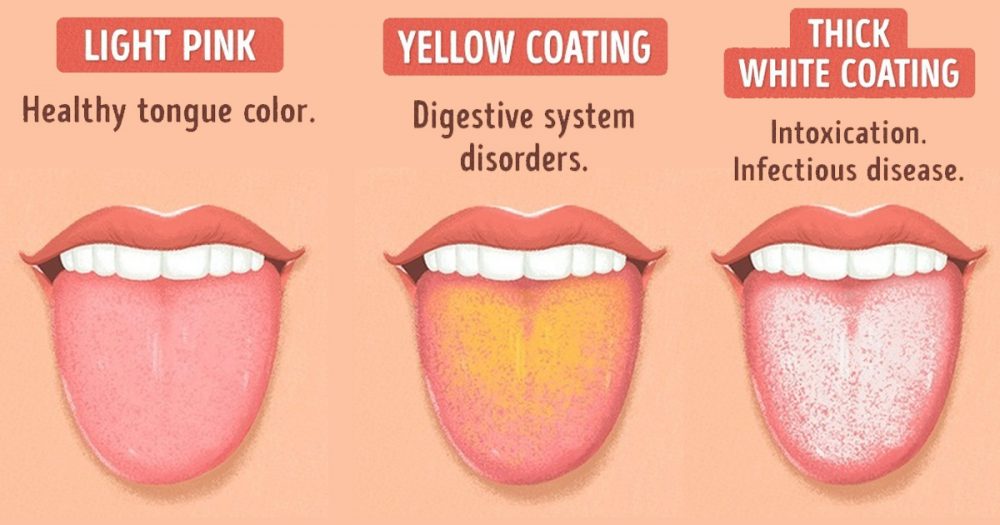Our tongue is probably one of the least talked about parts of the body when it comes to health – but did you know that tongues can help determine your oral health and overall health? In fact, you’d be surprised what your tongue can tell the dentist about your health! We explain more below.
A healthy tongue should be pink and covered with small nodules (correct term is papillae). Any deviation from your tongue’s normal appearance, or pain, may be cause for concern. Time to say “ahhhhh!”.
White Coating / White Spots
First, if you have a white coating on your tongue don’t start to assume the worst – it could be white from not brushing it. Try brushing the white coating off and if it’s still there it could mean more. A white coating could mean oral thrush, which is a yeast overgrowth that occurs inside the oral cavity. If there are white dots that could mean leukoplakia; a condition in which the cells in the mouth grow excessively.
Red Tongue / Red Bumps
A red tongue majority of the times is connected to a vitamin deficiency, such as folic acid or B-12. The solution could simply be adding a vitamin supplement to your diet. (But be sure to first book an appointment with your dentist to be sure.) An overly red tongue could also mean Kawasaki disease which is seen in children 5 and under and accompanied by a high fever. If you or your child has a red tongue AND fever, please seek immediate medical attention. Red bumps are commonly associated with a fever.
Tender/Sore Tongue or Bumpy
If your tongue is sensitive in just one spot or all over it could mean a food allergy – be cautious and take note of the food you recently ate. No need to worry UNLESS it does not go away. Causes for a bumpy tongue could be from smoking, canker sores or oral cancer. Keep in mind that many oral cancers don’t hurt in early stages, so don’t assume lack of pain means nothing is wrong. Always get a lingering bump on your tongue looked at.
Hairy Tongue
Kind of like your follicles, the papillae on your tongue can grow hair. Hair on your tongue is likely to harbor bacteria which is harmful to your oral health. Protein build-up can sometimes cause small bumps to become elongated trapping food and what results in your tongue looking hairy. Brush and scrape your tongue, however if that does not remove it see your dentist.
If you’re ever unsure about what the color of your tongue means, please never hesitate to give us a call. Dentists are your first line of defense for your oral health!

